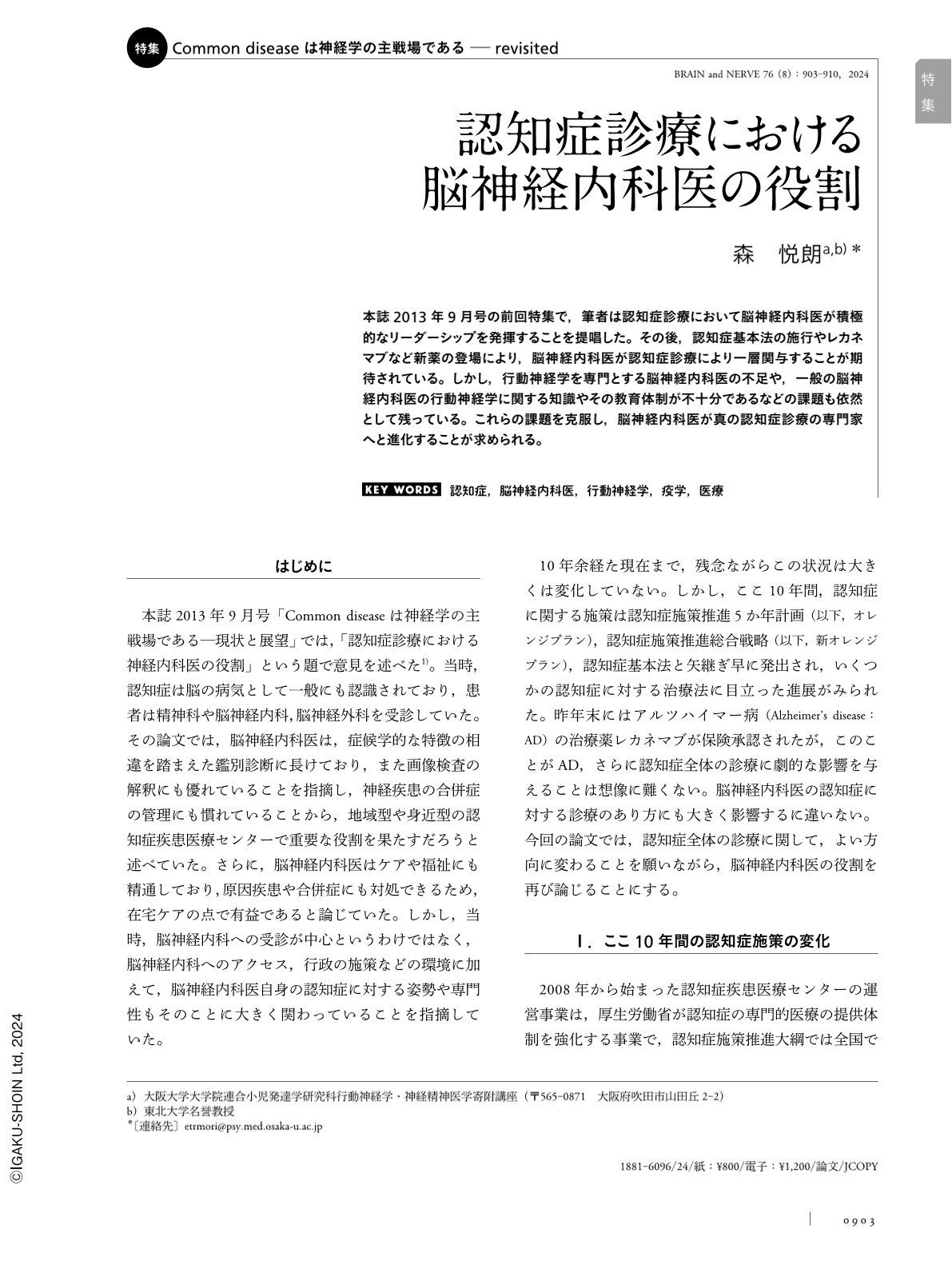Japanese
English
- 有料閲覧
- Abstract 文献概要
- 1ページ目 Look Inside
- 参考文献 Reference
本誌2013年9月号の前回特集で,筆者は認知症診療において脳神経内科医が積極的なリーダーシップを発揮することを提唱した。その後,認知症基本法の施行やレカネマブなど新薬の登場により,脳神経内科医が認知症診療により一層関与することが期待されている。しかし,行動神経学を専門とする脳神経内科医の不足や,一般の脳神経内科医の行動神経学に関する知識やその教育体制が不十分であるなどの課題も依然として残っている。これらの課題を克服し,脳神経内科医が真の認知症診療の専門家へと進化することが求められる。
Abstract
The September 2013 issue of this journal contains an article titled “The Role of Neurologists in Dementia Practice” in which I have highlighted the contributions of neurologists to dementia care. I have emphasized the importance of proactive leadership within interdisciplinary teams that include general practitioners and psychiatrists. Following the implementation of the Basic Act on Dementia to Promote an Inclusive Society and advances in medical science, such as introduction of the anti-Alzheimer drug lecanemab, neurologists are expected to play a more active role in dementia management and require more specialized skills. The emergence of lecanemab has led to more direct involvement of neurologists in dementia practice, which has resulted in the emergence of “novice” dementia specialists. However, a shortage of neurologists who specialize in behavioral neurology remains a significant concern in Japan. This challenge is compounded by the inadequate education of general neurologists in this domain, because dementia management requires deep knowledge and skills in behavioral neurology. The most important and urgent issue is to promptly address this shortage. Although neurologists' involvement in dementia practice is attributable to the introduction of lecanemab, I sincerely look forward to neurologists transitioning from “novice” to “real” experts in dementia. I reiterate this call as a recommendation to fellow neurologists, emphasizing the need to evolve into true specialists in the field.

Copyright © 2024, Igaku-Shoin Ltd. All rights reserved.


